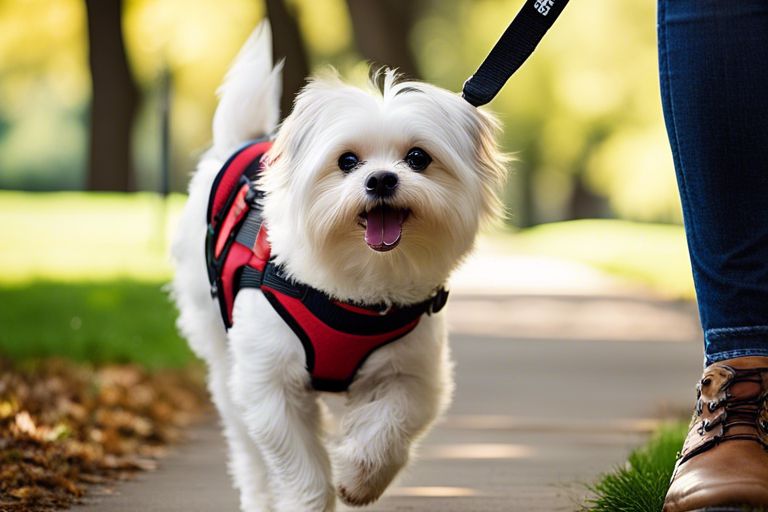As a veterinarian, I have seen many cases of Gastric Dilatation-Volvulus (GDV), commonly known as chest bloat, in German Shepherd dogs. This potentially life-threatening condition occurs when the stomach fills with gas, causing it to twist on itself. The consequences of chest bloat can be dire, including tissue death, shock, and even death. It is crucial for you to be aware of the symptoms and risk factors associated with GDV in German Shepherds, as well as the preventive measures you can take to protect your beloved pet.
Key Takeaways:
- Chest bloat is a serious condition in German Shepherd dogs. This condition can lead to severe health complications and even death if not treated promptly.
- Early detection and intervention are crucial. Being aware of the symptoms and seeking immediate veterinary care can greatly improve the chances of a positive outcome for your German Shepherd.
- Preventative measures can help reduce the risk. Feeding your dog smaller, more frequent meals and avoiding strenuous exercise after meals can help lower the chances of chest bloat occurring.
- Strict dietary management is important. Avoiding foods that can contribute to gas or bloating, such as soy, corn, and high-fat foods, can help prevent chest bloat in German Shepherds.
- Regular veterinary check-ups are essential. Having your German Shepherd examined by a veterinarian on a routine basis can help catch any potential issues before they become serious, including chest bloat.

Causes of Chest Bloat
Now, let’s talk about the various causes of chest bloat in German Shepherd dogs. Understanding the underlying reasons can help you take preventive measures and keep your furry friend healthy and happy.
Dietary factors
One of the primary factors that contribute to chest bloat in German Shepherds is their diet. Feeding large meals or foods high in fat or citric acid can increase the risk of bloat. Additionally, rapid eating or drinking large amounts of water immediately before or after meals can also lead to this condition. Recognizing these dietary triggers and making necessary adjustments can significantly reduce the risk of chest bloat in your German Shepherd.
Genetic predispositions in German Shepherds
German Shepherds have a genetic predisposition to chest bloat due to their deep chests and narrow waists. This anatomical feature makes them more susceptible to the condition compared to other dog breeds. Understanding this genetic predisposition can help you take proactive measures to prevent chest bloat in your German Shepherd.
Potential Dangers of Untreated Chest Bloat
Lastly, it is crucial to understand the potential dangers of leaving chest bloat untreated in German Shepherd dogs. This condition can lead to serious complications and can even be life-threatening if not addressed promptly.<\p>
Immediate health risks
When a German Shepherd dog experiences chest bloat, the immediate health risks are significant. The pressure buildup in the chest can restrict the dog’s ability to breathe, leading to respiratory distress. Additionally, the stomach may twist, cutting off blood flow to vital organs and causing extreme pain and discomfort for the dog. If not treated immediately, the dog’s condition can rapidly deteriorate, resulting in shock and potential death.
Long-term consequences for German Shepherd Dogs
Untreated chest bloat can also have long-term consequences for German Shepherd dogs. Even if the initial episode is successfully resolved, the risk of recurrence is high, especially in dogs with a deep chest like German Shepherds. Chronic chest bloat can lead to ongoing health issues and discomfort for the dog, impacting their quality of life and potentially shortening their lifespan. It is essential to address this condition promptly to reduce the risk of long-term consequences for your German Shepherd.<\p>
Diagnosis and Treatment
However, diagnosing chest bloat in German Shepherd dogs can be a challenge due to its similarity to other health issues such as gastric torsion, pneumonia, or heart disease. In some cases, a physical examination, blood tests, and imaging such as X-rays or ultrasounds may be necessary to accurately diagnose chest bloat.
Vet Procedures in Detecting Chest Bloat
When you bring your German Shepherd to the vet for a suspected case of chest bloat, they may perform a series of tests to confirm the diagnosis. This can include a physical examination to check for symptoms such as labored breathing and a distended abdomen. Additionally, the vet may order blood tests to check for signs of inflammation or infection, as well as imaging such as X-rays or ultrasounds to visualize the location and severity of the bloating.
Available cure and medical treatments for German Shepherd Dogs
Once diagnosed, chest bloat is considered a medical emergency, and immediate treatment is crucial. The vet may attempt to relieve the bloat through decompression, which involves passing a tube through the dog’s esophagus to release built-up gas. In severe cases, surgery may be necessary to correct the issue and prevent further complications.
Preventative Measures
Your German Shepherd’s health is of utmost importance, and preventing chest bloat should be a top priority. One of the most effective ways to prevent this condition is by educating yourself on the risk factors and taking appropriate measures to minimize them. As a responsible pet owner, it is crucial to be proactive in implementing preventative strategies to ensure the well-being of your furry companion.
Changes in Feeding habits
When it comes to preventing chest bloat in German Shepherds, making changes in their feeding habits can play a significant role. Feeding your dog smaller, more frequent meals throughout the day instead of one large meal can help reduce the risk of bloat. Additionally, utilizing raised feeding bowls and ensuring your dog rests for at least an hour after eating can also contribute to preventing this condition. It’s important to pay attention to the type of food you are feeding your German Shepherd, as certain ingredients or the rate of consumption may increase the likelihood of bloat.
Role of Regular Checkups for German Shepherds
Regular veterinary checkups are a crucial aspect of preventative care for German Shepherds. During these checkups, your veterinarian can assess your dog’s overall health and identify any potential risk factors for chest bloat. This can include evaluating your dog’s body condition, discussing any changes in behavior or eating habits, and performing physical examinations. Routine checkups also provide an opportunity to discuss any concerns you may have and receive guidance on managing your dog’s health effectively. By staying proactive and maintaining regular vet visits, you can stay ahead of potential health issues, including the risk of chest bloat.
By implementing these preventative measures, you can significantly reduce the risk of chest bloat in your German Shepherd. It is important to stay informed about this condition and take proactive steps to ensure your dog’s well-being. For more information on gastric dilatation and volvulus (GDV), also known as chest bloat, visit Gastric Dilatation and Volvulus (GDV), Also Known as…
How Serious Is Chest Bloat In German Shepherd Dogs?
To wrap up, chest bloat in German Shepherd dogs can be a serious and life-threatening condition. It is important to be aware of the symptoms and risk factors associated with this condition, as well as to take preventive measures to reduce the risk of bloat occurring. If you suspect your German Shepherd may be suffering from bloat, it is crucial to seek immediate veterinary attention to increase the chances of a successful outcome. Proper management and prompt medical intervention are key to addressing chest bloat in German Shepherd dogs and ensuring their well-being.
FAQ
Q: What is chest bloat in German Shepherd dogs?
A: Chest bloat, also known as Gastric Dilatation-Volvulus (GDV), is a life-threatening condition in which a dog’s stomach fills with gas, causing it to twist on its axis. This is an emergency situation that requires immediate veterinary attention.
Q: How serious is chest bloat in German Shepherd dogs?
A: Chest bloat in German Shepherds is extremely serious and can be fatal if not treated promptly. The twisting of the stomach can lead to tissue death, organ damage, and a compromised blood supply to vital organs.
Q: What are the symptoms of chest bloat in German Shepherd dogs?
A: Symptoms of chest bloat in German Shepherds may include a distended abdomen, unproductive retching or vomiting, restlessness, excessive drooling, and difficulty breathing. If you notice any of these symptoms, seek immediate veterinary care.
Q: What causes chest bloat in German Shepherd dogs?
A: The exact cause of chest bloat is not fully understood, but it is believed to be linked to a combination of genetics, anatomy, and diet. Factors such as rapid eating, exercise after meals, and stress may also contribute to the development of GDV in German Shepherds.
Q: How can chest bloat in German Shepherd dogs be prevented?
A: While chest bloat cannot be completely prevented, there are steps that can be taken to reduce the risk. Feeding multiple small meals throughout the day, using a slow feeder bowl, and avoiding exercise after eating can help minimize the chances of GDV in German Shepherds. Regular veterinary check-ups and discussions about your dog’s risk factors are also important for prevention.



2 thoughts on “How Serious Is Chest Bloat In German Shepherd Dogs?”